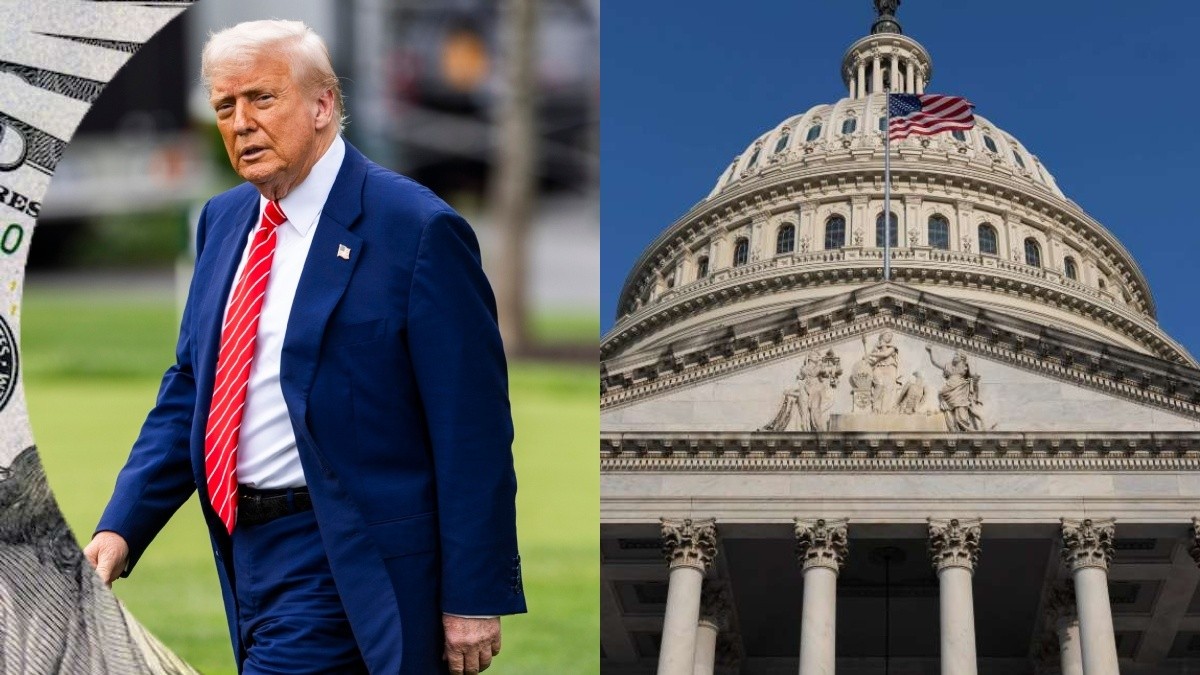Trump's 'Big Beautiful Bill': Thousand Pages of Controversy, Debts, and Cuts

The 'big beautiful bill' of President Donald Trump, a massive legislative package spanning over a thousand pages, has ignited a wave of deep concern and debate in the Senate. This ambitious project, which President Trump has urged to pass swiftly, is projected to add a net of $2.4 trillion to the deficit over a decade, compounding the $21.4 trillion in deficits already forecasted through 2034.
The central concern permeating the Capitol Hill debate is the rising national debt . Despite efforts to extend the 2017 tax cuts and introduce new initiatives like the 'no taxes on tips' plan, the bill seeks to partially offset its costs with cuts to federal health, food, and education programs, shifting a greater burden to the states. Fiscal hawks within the Republican Party, such as Senator Rand Paul (R-Ky.), argue that the proposed spending cuts are 'nowhere near enough.'
Senator Ron Johnson (R-Wis.) has directly expressed to President Trump his desire for deeper cuts, while striving not to be a 'negative influence.' Senator Rick Scott (R-Fla.) is also among the critics who believe the bill is not serious enough to address budget deficits. These internal divisions mean that Republican senators, holding a narrow 53-47 majority, must make difficult concessions to secure the package's approval.
Several specific provisions of the bill have sparked intense debates. The controversial limit on SALT (state and local taxes) deductions is a key point of contention. The House version, resulting from negotiations with moderate Republicans from high-tax states, included a $40,000 deduction limit, a significant increase from the current $10,000 cap.
Senators like Rick Scott (R-Fla.) argue against subsidizing the 'wasteful spending' of high-tax states. The absence of Republican senators representing the states most affected by the SALT cap (New York, New Jersey, and California) puts the bill's language at risk of change in the Senate. House Republicans belonging to the SALT Caucus have warned that if this agreement is altered in the Senate, they will not support the package when it returns to the House, endangering the entire bill.
The bill has also generated significant controversy over its proposed cuts and changes to Medicaid, the federal-state program providing health insurance to over 70 million low-income and disabled individuals. The House-approved version proposes more frequent eligibility reviews and work requirements for low-income, non-disabled adults starting in late 2026. The Congressional Budget Office (CBO) estimates that work requirements alone could increase the number of uninsured by 4.8 million by 2034.
Senator Susan Collins (R-Maine) has expressed concern over a provision on state taxes on Medicaid providers and its potential impact on rural hospitals in her state, which are already 'teetering.' Senator Rick Scott (R-Fla.) has criticized the 90% federal match rate for the Medicaid expansion population, arguing it makes no sense to pay more for a healthy adult than for a poor child. Although sources do not detail direct cuts to Medicare, Senator Bill Cassidy (R-La.), a physician, is trying to gain support to save money by targeting Medicare Advantage insurers' practices of adding additional diagnoses.
The bill includes Trump Savings Accounts, which would start with a $1,000 government contribution for children born in the U.S. between 2025 and 2029. Newborns would be automatically enrolled in the program. Parents or guardians can add up to $5,000 annually in post-tax contributions. Although President Trump claims they will have 'absolutely no cost' to taxpayers by being funded with a 3.5% tax on remittances sent abroad, they are projected to cost the government $3.6 billion annually in their current form.
Financial experts consider them 'not very attractive' due to their limited tax benefits compared to other savings options like 529 accounts or Roth IRAs. A group of moderates in the Senate advocates for a less aggressive reversal of clean energy tax credits that Democrats approved in 2022, feeling the House acted too quickly on this aspect. Senator Tommy Tuberville (R-Ala.) opposes a provision that would require states to pay for the first time a portion of food benefits for low-income families (at least 5%), arguing that states cannot be 'overburdened with what is supposed to be federally funded.'
Senator Steve Daines (R-Mont.) has declared a 'red line' on the permanence of deductions for investments in equipment and other business costs, threatening to vote against the bill if they are not made permanent. President Donald Trump has reiterated that the work of the Department of Government Efficiency (DOGE), tasked with making cuts across the federal government, 'is not over at all' despite the publicized breakup of his relationship with Elon Musk, who previously led the initiative.
Musk had set an ambitious goal of saving $1 trillion, even $2 trillion, but the current total savings declared by DOGE on its website is $180 billion. The director of the White House Office of Management and Budget, Russ Vought, has begun to fill the void left by Musk, although he does not call himself the leader of DOGE. The House of Representatives is moving forward with a $9.4 billion package to codify DOGE's cuts, targeting areas such as foreign aid and public media funding, including NPR and PBS.
Post a Comment for "Trump's 'Big Beautiful Bill': Thousand Pages of Controversy, Debts, and Cuts"
Post a Comment